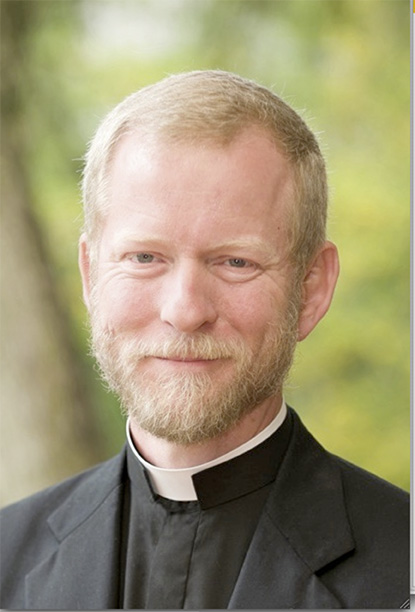
During serious illness conversations, some doctors will ply their patients with this question: “What is your minimally acceptable quality of life?”
Behind the question can be the implication that if patients are experiencing a low quality of life, their medical treatments can be discontinued because their life has become “no longer worth living.”
This can even become a shorthand to justify actions like physician-assisted suicide or euthanasia. Making quality-of-life assessments about ourselves or others can lead us to devalue the gift of human life by insisting it must have a certain amount of “quality” before it can be deemed “meaningful” or “worthwhile.”
The clearest rebuttal of the “quality of life” error I’ve come across was from a 64-year-old retired Boeing computer programmer named John Peyton (1945-2009). He lived in Kent, Washington, and had an unusually aggressive form of amyotrophic lateral sclerosis, or ALS, commonly known as Lou Gehrig’s disease. The disease made him totally dependent on Patricia, his wife of 40 years. She dressed him, fed him, and regularly shifted his body position in the living room recliner where he spent his declining months.
As Peyton’s once-strong voice gradually began to fade away, he continued to use it publicly to oppose and lobby against Initiative 1000, the assisted suicide initiative in Washington.
When he was interviewed by Laura Ingraham of Fox News, he said, “I’m one of those people who is somewhat of a target of the initiative, and I don’t know how we as a society could really consider making doctors into killers.”
Laura countered: “John, I think a lot of people who are for this type of assisted suicide would say, ‘Look, what about the quality of life?’ ‘Look, you know, people suffering like you — what kind of quality of life do you really have?’ What do you say to those people?”
His reply was as brilliant as it was simple:
“I have a marvelous quality of life! Right now I am totally dependent. I can do nothing for myself. I’m effectively paralyzed. But I have a family. I have friends. I have my church community. I have loving support all around me. I don’t understand how anyone could deny that I have a very high quality of life, and it gets me to understand and be compassionate toward those without the support that I have. Rather than giving them the temptation to kill themselves, we should be trying to figure out how to help them to have the quality of life I enjoy.”
Peyton’s answer cuts to the heart of the matter: if anyone who is sick or dying is facing a low quality of life, we should take steps to raise and improve it. His story also reminds us how the one-sided category of “quality of life” can easily tempt us in the wrong direction when it comes to basic moral duties owed to our loved ones in compromised states like a coma, ALS, stroke, Alzheimers, or dementia.
Instead of making quality-of-life judgments about people, we should be making “quality of treatment” judgments for those who are ailing and vulnerable, and perhaps “quality of help” judgments against ourselves.
As such, our focus should be on the benefits and burdens of a proposed medical intervention rather than on trying to impose our own conclusion that certain individuals no longer have enough value or meaning in their lives to merit receiving a particular treatment. Their humanity is violated if they are treated according to their functionality or quality of life, rather than according to their personal dignity.
Of course everyone has a certain natural fear or hesitation when it comes to living in a disabled or compromised state. We may also be afraid of “being a burden to others.” When we acknowledge that the gift of life has “absolute value,” that doesn’t mean we must do absolutely everything scientifically available to maintain it, but it does mean that we should exercise good stewardship over it, making use of ordinary means of treatment and receiving supportive care, even in the face of imminent decline.
It also means the decision to refuse or stop a particular medical treatment should be based on the judgment that the treatment itself is extraordinary; that is to say, it offers minimal benefit or is unduly burdensome. It should not be because we conclude that someone’s life itself lacks value and needs to end.
Individuals struggling with grave ailments, even though they may be very compromised and unable to act as their own decision-makers, remain persons of great moral worth. They contribute to the common good simply by being, rather than by doing or choosing. Moreover, they continually call each of us to a higher and more beautiful standard of full acceptance, loving support and authentic care, even and especially in the midst of very challenging medical circumstances. They raise the bar for us and we should respond by elevating their quality of life.
Fr. Tadeusz Pacholczyk, Ph.D. earned his doctorate in neuroscience from Yale and did post-doctoral work at Harvard. He is a priest of the diocese of Fall River, Massachusetts, and serves as the director of education at The National Catholic Bioethics Center in Philadelphia. See www.ncbcenter.org and www.fathertad.com.
